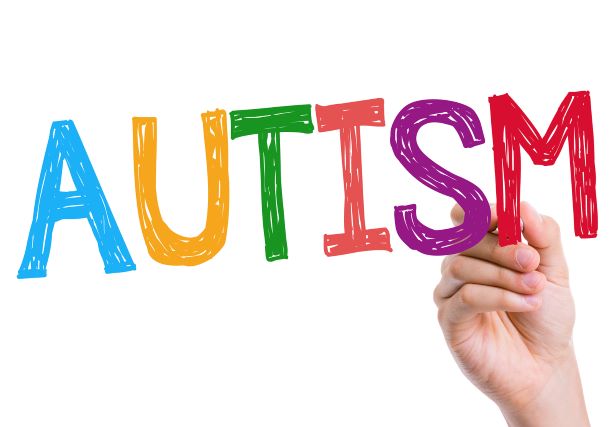Autism Speaks Releases Results of First Online Community Survey On Livability Issues for People with Autism and Their Families
NEW YORK, N.Y. (April 1, 2011) – The greater New York, Los Angeles, Chicago, Cleveland, Philadelphia and Boston metropolitan areas are among the 10 best places in America to live for people who have autism, according to the results of an online survey released today – the first day of Autism Awareness Month and the eve of World Autism Awareness Day – by Autism Speaks, the world’s largest autism science and advocacy organization. Northern New Jersey, Minneapolis/St. Paul, Seattle and Milwaukee are also among the top 10 listed. The survey also found that nearly 75% of respondents were not satisfied with their community’s resources and services for people with autism. Among the states faring worst in the survey, in terms of the percentage of negative responses from that state, were Texas, Virginia, Tennessee, Ohio, Florida, Michigan and California.
For those who responded positively that they are generally happy with the availability of services and resources where they live, many cited satisfaction with the educational services their child receives, proximity to outside services, flexible employer policies, access to clinical/medical care and recreational opportunities as key attributes. Conversely, those who were unhappy about their community’s resources reported, by very large margins, having to travel considerable distances (over an hour) for treatments and services, said medical services were difficult to come by, and noted that few, if any, recreational services were available locally. Across the board, respite services were lacking in all areas. More than 800 members of the autism community in 48 states and the District of Columbia participated in the survey.
“These survey results confirm what we hear every day from families – that they are struggling to get their children services that are essential to their development and well-being,” said Bob Wright, co-founder of Autism Speaks.
“Our goal in conducting this survey is to encourage conversations within the autism community, and to inform policy makers and leaders in local communities about the tremendous need for increased services and inspire action. Overall, the needs of the growing population of people with autism are not being met, and that has to change,” said Mark Roithmayr, president of Autism Speaks.
Educational guarantees are not evident
Most respondents said that educational services were available in their community, however, there was significant inconsistency on the quality and level of services. Of those who had a positive view of their communities’ services, 95% reported that their school-aged child received appropriate educational services. However that fell dramatically to only 57% among those who were not satisfied with availability of educational services in their community. Even more compelling was the “fight” that was required so often to obtain educational supports. Among positive respondents, almost a quarter (24%) reported it was hard to obtain those educational services. For families generally unhappy with supports in their community, an incredible 83% described just how hard it was to access educational services. Families told of needing to find specialized experts to best place their child, needing to change schools or districts, or having to resort to expensive legal action.
“These findings are even more compelling when you recognize that federal guarantees for special education services date back more than three decades,” said Gary Mayerson, founding attorney of Mayerson & Associates, a law firm that represents and advocates for children and adolescents diagnosed with autism. “Since 1975, children with disabilities have been guaranteed equal protection to secure appropriate and effective educational programs despite their disabilities. To find this level of disservice and the need to fight to secure what Congress clearly intended as an entitlement is incredibly troubling, but unfortunately not surprising.”
“When working to secure the proper educational supports for your child with autism, there is no such thing as being too prepared,” advised Rachelle H. Milstein of Milstein Law, an attorney dedicated to representing children with special educational needs and their families. “You can be your child’s best advocate, but you need to do your homework. Do your own research, have your child evaluated by an expert in the field as early on as possible, and document everything in writing. Hope for the best, but prepare for the worst. You are much more likely to be successful if you have been diligently substantiating your position from the start.”
Slow progress towards better access to medical and clinical services.
Access to medical and clinical services was directly related to overall satisfaction with services in the local community. Among negative responders, 75% reported they could not access medical and clinical services; conversely, 83% of positive responders reported good access to medical and clinical services.
“The need for improved access to medical and clinical services was clearly established in the 2005-2006 National Survey of Children with Special Health Care Needs published in Pediatrics (2008), which found that children with autism spectrum disorders have more difficulties accessing medical care and more unmet needs than other children with special health care needs,” said Dan Coury, M.D., Medical Director for the Autism Treatment Network. “These survey findings demonstrate that this problem of access to satisfactory clinical or medical services persists,” continued Coury. “We know that many physicians are uncertain regarding what constitutes appropriate medical management.”
Five of the 10 “best places” are in states that have enacted autism insurance reform (24 states, in total, have enacted laws). The other five states have bills that have been endorsed by Autism Speaks or have legislation pending introduction. “Our fight to reform state insurance laws is an effort to ensure that thousands of families don’t have to pay out-of-pocket for a diagnosis, treatments and other related care,” continued Wright. “But these victories aren’t helping families who don’t have access to services in their communities.”


